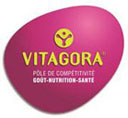The project

Context. Putting your food in your mouth is the final step of the food chain and the start of the digestion process. It's a key step that affects not only the « pleasure of eating» through the perception of the sensory properties of the food, but also the bioavailability of nutriments when the food is broken down. In the elderly, their oro-dental state plays a major role in food consumption and the maintenance of a satisfactory nutritional status. In fact, aging is frequently accompanied by decrease chewing efficacy (decreased muscle strength, loss of teeth), modifications in saliva flow, impaired swallowing and dryness or pain in the mouth. This deterioration in the oro-dental status may lead to difficulties with eating and modify food intake in terms of both quality and quantity with the people concerned avoiding food that is difficult to chew and losing their appetite if eating becomes painful.
Objective. The ambition of the ALIMASSENS project is to develop and then propose food adapted to the chewing difficulties experienced by elderly people. The aim is to combine eating pleasure, eating comfort and nutritional efficacy. The specific objectives are as follows:
- Determine the link between oral physiology, sensory sensitivity and eating comfort in the elderly
- Understand the importance of the socio-economic factors in food choices in the elderly with regard to the difficulties they experience with eating
- Develop foods that restore eating pleasure and provide the necessary nutrition
- Propose quality foods that are affordable for all
Key numbers. The ALIMASSENS project is funded by the ANR to the amount of 1,623 k€ for a total cost of almost 6.5 million euros. This project is also supported by the Vitagora and Valorial competitiveness clusters and by Burgundy Regional Council. This 5-year project (2014 to 2018) brings together 10 public research institutes, 1 cluster of technical facilities and 4 private partners.
 |
 |
 |